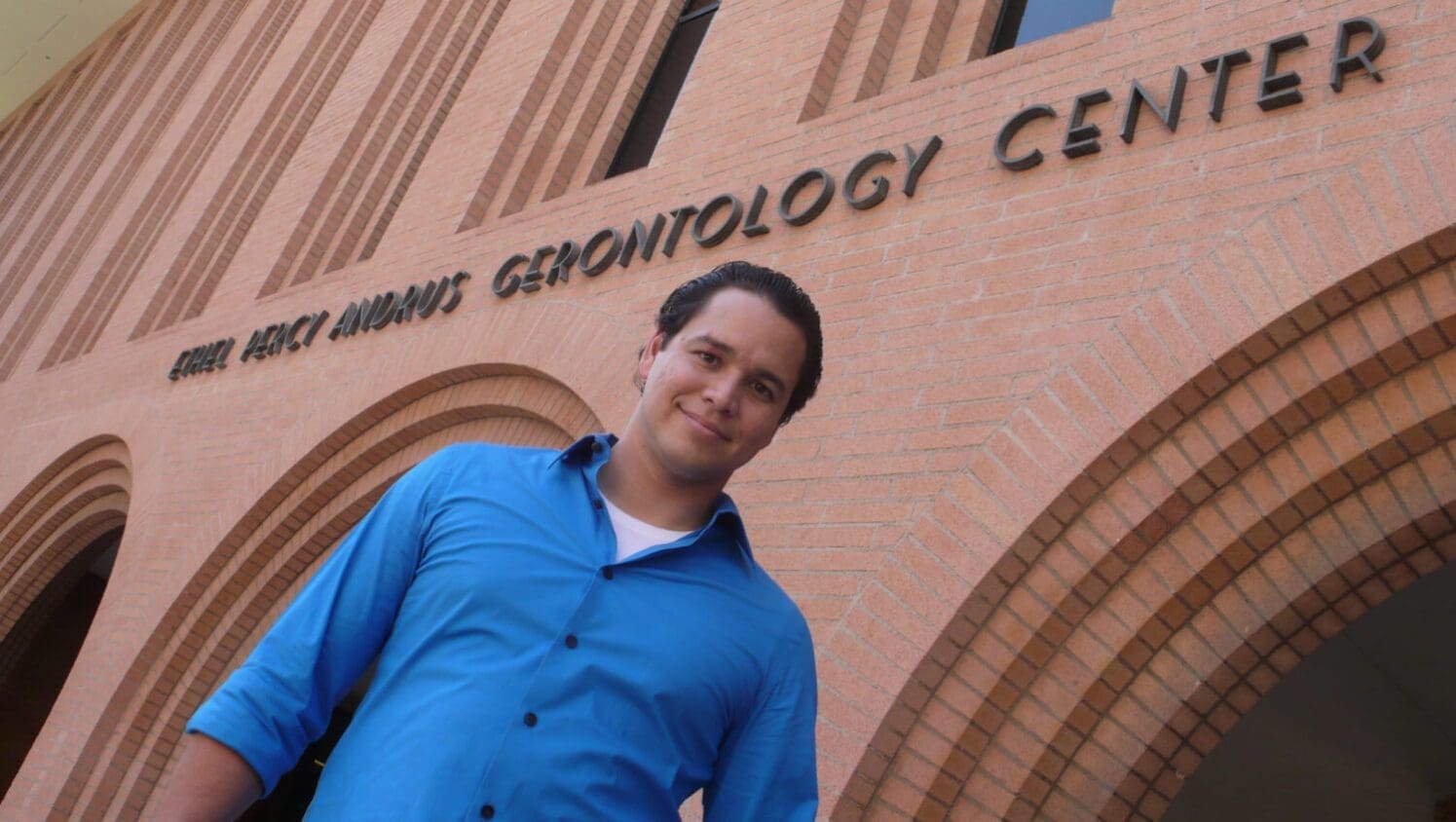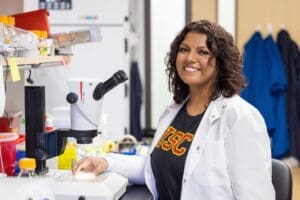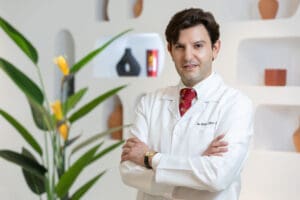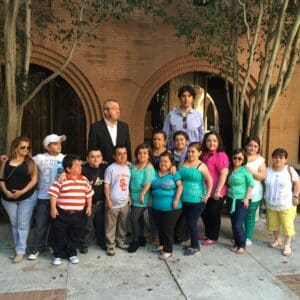New research by a team at the USC Leonard Davis School of Gerontology into how organisms respond to lack of nutrition could have a far-reaching impact on how we understand obesity and longevity and potentially fight chemotherapy-resistant cancer.
Published in Cell Metabolism, the paper details a discovery made in the lab of Sean Curran, assistant professor of biogerontology at the USC Leonard Davis School of Gerontology. Curran’s lab looked at how proteins in our bodies respond to starvation, in particular a protein known as SKN-1 that binds to DNA and affects how the starvation response is mediated. (Nrf is the mammalian equivalent of SKN-1.)
The Curran lab’s finding that, in the presence of a starvation environment, cells initiate and regulate complex metabolic changes, sheds fascinating new light into the study of existing cellular mechanisms as well as opening the door for exciting intracellular bioengineering possibilities.
Curran and his team also found that although a mitochondrial pool of SKN-1 has never previously been identified, it is indeed present, most likely in the outer membrane of the mitochondria — they term this discovery mito-SKN-1.
“The regulation of lifespan is complex. SKN-1/Nrf were discovered decades ago, but this work uncovers a novel role for this well established player,” Curran said. “This discovery changes how we think about how transcription factors are regulated.”
Using a roundworm known as C. elegans, Curran and his lab studied how complex organisms responded on a cellular level to being starved.
They focused on the interaction of proteins PGAM-5 and MXL-3 with mitochondrial pools of SKN-1. Although most starved C. elegans were able to recover and achieve fertile adulthood when reintroduced to food, specially mutated worms were unable to turn off the body’s starvation response even in nutrient-rich environments – highlighting key molecular and physiological genetic differences of special interest to scientists.
“This starvation response has a huge impact on nutrient pathways that regulate lifespan and survival,” Curran said. “Although the amount of SKN-1 did not seem to make a difference, it’s the activated form of SKN-1 that matters.”
His team also found a correlation to the SKN-1 effects in mice when their activated Nrf similarly induced a starvation response. The team’s discovery has enormous potential repercussions when extrapolated to Nrf-positive tumors, which tend to be resistant to chemotherapy.
“By exploiting this starvation response, we might be able to think of new treatments,” Curran said.
This publication represents both a scientific and personal milestone for Curran, who holds joint appointments at the USC Leonard Davis School and in molecular and computational biology at the USC Dornsife College of Letters, Arts and Sciences as well as in biochemistry and molecular biology at the Keck School of Medicine at USC.
“Combining genetic, cell and molecular biology, and biochemistry approaches, this the first major publication from the Curran lab,” he said. “I am really proud of it.”
Co-authors of this study were Jennifer Paek and Tammy N. Nguyen (USC Leonard Davis School of Gerontology); Jacqueline Y. Lo (Dana and David Dornsife College of Letters, Arts and Science); Sri Devi Narasimhan, Kira Glover-Cutter, Stacey Robida-Stubbs and T. Keith Blackwell (Joslin Diabetes Center, Harvard Stem Cell Institute and Harvard Medical School); and Takafumi Suzuki (Tohoku University School of Medicine, Japan).
The research was funded by the National Institutes of Health (grants number R01GM6289 and R00AG032308) and the Ellison Medical Foundation.

 “United we stand, divided we fall” isn’t just a patriotic slogan – it’s also the rallying cry of Californians who joined forces with USC’s Fall Prevention Center of Excellence to celebrate the fifth annual Fall Prevention Awareness Week.
“United we stand, divided we fall” isn’t just a patriotic slogan – it’s also the rallying cry of Californians who joined forces with USC’s Fall Prevention Center of Excellence to celebrate the fifth annual Fall Prevention Awareness Week. Helping older adults has been USC Leonard Davis School of Gerontology graduate student Brenda M. Vázquez’s day job for almost a decade, but she prides herself on continuing to search for new avenues and opportunities to serve.
Helping older adults has been USC Leonard Davis School of Gerontology graduate student Brenda M. Vázquez’s day job for almost a decade, but she prides herself on continuing to search for new avenues and opportunities to serve. Covering high-profile visits by the USC Leonard Davis School’s Dean Pinchas Cohen, MD, Associate Dean Maria Henke, Dean Emeritus Edward Schneider, MD and Director of International Student Initiatives, May Ng, the newspaper gave an overview of the School’s mission, offerings and upcoming appearances at IIE U.S. Higher Education Fairs in Shanghai, Taipei and Hong Kong.
Covering high-profile visits by the USC Leonard Davis School’s Dean Pinchas Cohen, MD, Associate Dean Maria Henke, Dean Emeritus Edward Schneider, MD and Director of International Student Initiatives, May Ng, the newspaper gave an overview of the School’s mission, offerings and upcoming appearances at IIE U.S. Higher Education Fairs in Shanghai, Taipei and Hong Kong. “I am grateful for and humbled by this recognition,” Broder said. “It has been my honor to serve the students, staff, faculty and friends of the USC Leonard Davis School, and I look forward to many more adventures at this wonderful institution.”
“I am grateful for and humbled by this recognition,” Broder said. “It has been my honor to serve the students, staff, faculty and friends of the USC Leonard Davis School, and I look forward to many more adventures at this wonderful institution.”







